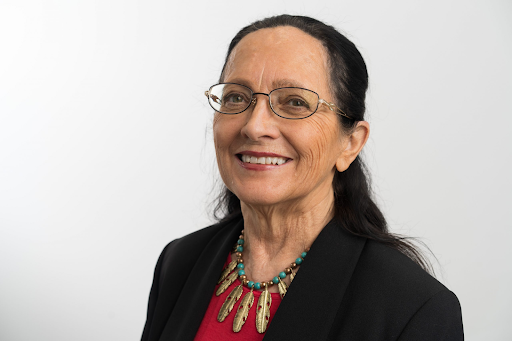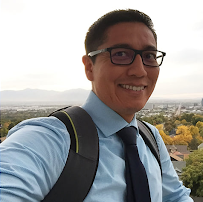Date: September 26, 2022 (Season 5, Episode 4: 54 minutes and 19 seconds long). Click here for the BuzzSprout version of this Speak Your Piece episode. Are you interested in other episodes of Speak Your Piece? Click here. The above photo is of the Carlisle Indian Boarding School student body, circa 1885. The Carlisle Indian Boarding School, located in Carlisle, Pennsylvania, was opened and directed by Civil War veteran Lt. Col. Richard Henry Pratt in 1879. Attributed to Taylor’s comments from the episode, many schools followed Carlisle’s educational philosophy, requiring Native students to leave behind their language and culture, and assimilate into white, Capitalism-based American culture. Photo courtesy of Nativenewsonline.net. The episode was co-produced by James Toledo, Chelsey Zamir, and Brad Westwood, with sound engineering and post-production editing by Jason T. Powers, from the Utah State Library Recording Studio.
The opinions shared in this podcast episode reflect the historical research of the guests and not the official views of the state of Utah.
Content Advisory: This SYP series is about Utah’s Native American boarding school era, which spanned from the mid-1800s to approximately 1980s, when Native American children (ages 5 to 18+) were forcibly removed, then later encouraged, to leave their families and communities, in order to receive a 1-7 then later a K-12 education. This history can be emotionally challenging for any listeners but even more so for those who experienced it, either first-hand or by its multi-generational effects. If you or someone you know needs to talk to someone regarding the traumatic effects related to this history, contact the 988 Suicide & Crisis Lifeline for Native Americans and Alaska Natives at 1-800-985-5990.
This Speak Your Piece episode is part two of a five-part series on Native American boarding schools in the Western United States and in Utah. In this episode, Franci Lynn Taylor (Choctaw), former Executive Director of the University of Utah’s American Indian Resource Center, tells a somewhat chronological story of Indian educational policies, with series hosts James Toledo and Brad Westwood. Taylor begins with the post-Civil War-era boarding school policies inspired by the Carlisle Industrial School of 1879.
The initial policy for this school was stringent, with the intent of stripping Native children of their identities and cultures (they came from many diverse and dispersed indigenous nations). Rising poverty on Indian reservations (established in the Western U.S., 1860 to 1880s) increased to the point where Native parents, in desperate circumstances, sent their children to boarding schools to ensure they were clothed, fed, and educated, at least for nine months out of the year. Schools like Carlisle, which opened across the U.S., were intent on assimilating Native children, and depending on what Protestant Church was overseeing a given reservation, converting them to this religion.
Taylor continues by tracing the Dawes Act (1887), which hoped to accelerate Native Americans’ assimilation further by splitting up tribal lands and making Native Americans yeoman farmers. She continues by describing other assimilation policies such as the Indian Relocation Act (1956) which provoked a backlash of Native American activism in the late 1960s and 1970s, which eventually brought about the Indian Self Determination Act, passed by the U.S. Congress in 1975 and the American Indian Religious Freedom Act, passed in 1978. Taylor traces policies to the present day, including the Bureau of Indian Affairs’ schools, tribally-run schools, state-run schools, and state-access schools.
Throughout these federal policy attempts at Native American assimilation, Taylor describes a history of resiliency, generation after generation. The love for the community is the thread that weaves through this narrative. She concludes by tracing some of the healing initiatives for Native American communities, such as the 2021 formation of the U.S. Interior Department’s Boarding School Healing Project, which Taylor hopes will make sure many will never forget what happened, so history won’t repeat itself. As Taylor notes, it’s not about pointing the finger at who is to blame; rather, it’s a matter of bringing awareness of the past and gathering people together to see that we will never happen again.
Part 1: Native American Boarding Schools in the Am. West & in Utah (ca. 1870s-1980s) with Dr. Farina King (Diné) – an Introduction
Part 2: American Boarding School Policies with Native American College Adviser Franci Lynne Taylor (Choctaw) (Season 5: Episode 4)
Part 3: Matthew Garrett on “Making Lamanites: Mormons, Native Americans, and the Indian Student Placement Program, 1947-2000” (Season 5: Episode 5)
Part 4: Diné Elders Rose Jakub (Diné) and Gayle Dawes (Diné) on Their Boarding School Experiences (Season 5, Episode 6)
Part 5: James Toledo on Multi-Generational Impacts from Boarding Schools and on the Need for Healing (Season 5, Episode 11) – Series Conclusion

Bio: Franci Lynn Taylor (Choctaw) is the former executive director of the University of Utah’s American Indian Resource Center. Before coming to Utah, Taylor was a Native American college advisor. She is currently working for a Utah educational and community development organization. Photo courtesy of the University of Utah’s Diversity, Equity, & Inclusion Department’s website.
Bio: James Toledo, is a citizen of the Navajo Nation and is the program manager for the Utah Division of Indian Affairs. Toledo is co-host of this five-part Speak Your Piece podcast series on Native American boarding schools in Utah.

Additional Resources & Readings:
- “Interior Department and National Endowment for the Humanities Partner to Preserve Federal Indian Boarding School Oral History and Records,” National Endowment for the Humanities, April 25, 2023.
Do you have a question or comment, or a proposed guest for “Speak Your Piece?” Write us at “ask a historian” – askahistorian@utah.gov

